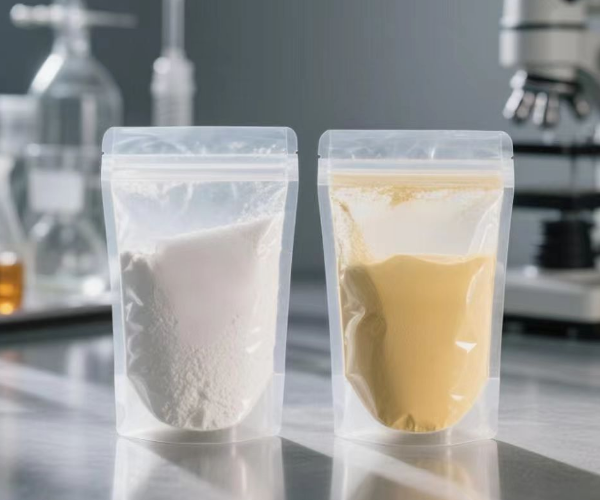Guar Gum vs Xanthan: The Better Natural Gum?
Guar gum and xanthan gum are both natural hydrocolloids widely used in food, petroleum, personal care,
pharmaceutical and other industries, sharing similar functions such as thickening, stabilizing and emulsifying.
Guar Gum: Derived from the endosperm of guar beans (Cyamopsis tetragonoloba) through physical grinding and extraction.
Xanthan Gum: A microbial polysaccharide produced via aerobic fermentation of Xanthomonas campestris.

Given the similar properties of xanthan gum and guar gum, why are increasing numbers of enterprises favoring
guar gum products? What specific advantages does guar gum offer over xanthan gum?
● Higher viscosity:
At equal concentrations, guar gum typically exhibits 2-5 times higher viscosity than xanthan gum.
● Rapid hydration
Guar gum dissolves faster in cold water, making it ideal for frozen food applications such as
ice cream and pastry fillings.
● Lower cost
Guar gum's raw material (guar beans) has more extensive sources, and its manufacturing process
is relatively simpler, making it more cost-effective than xanthan gum.
● Superior compatibility:
Guar gum can be compatible with multiple hydrocolloids to produce synergistic effects, enabling superior
adjustment of product texture and performance.
● Sustainability
Guar bean cultivation requires only one-third the water consumption of xanthan gum's fermentation
energy demands. Non-GMO and naturally sourced, it better aligns with modern consumer trends.
Guar gum is emerging as the preferred hydrocolloid in food, personal care and related industries, owing to its multiple
advantages including cost-effectiveness, superior thickening performance, and environmental friendliness!


